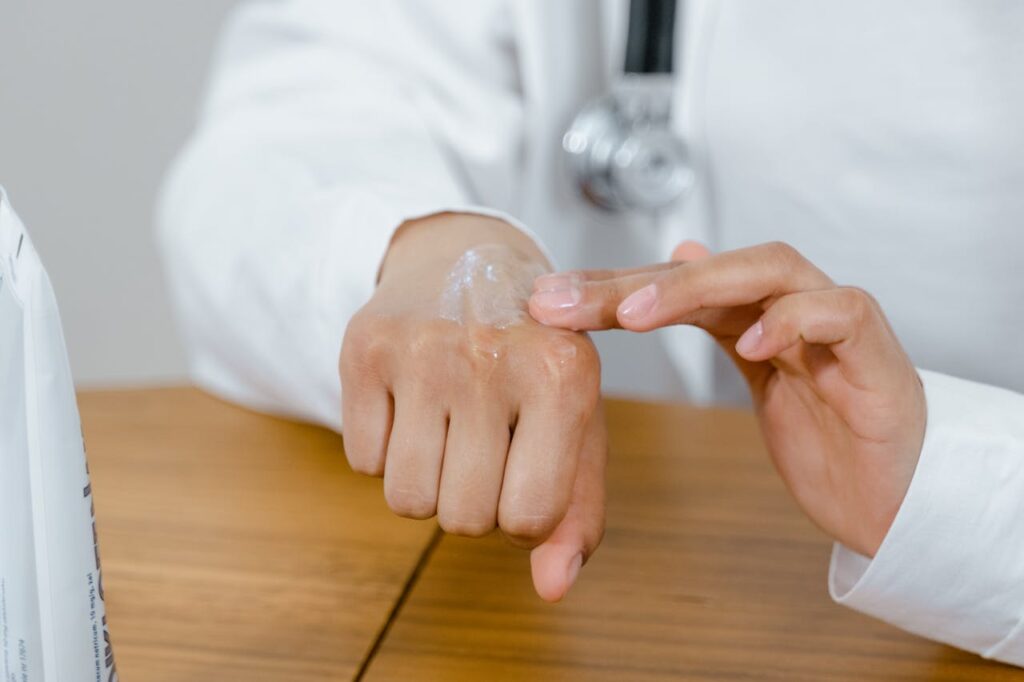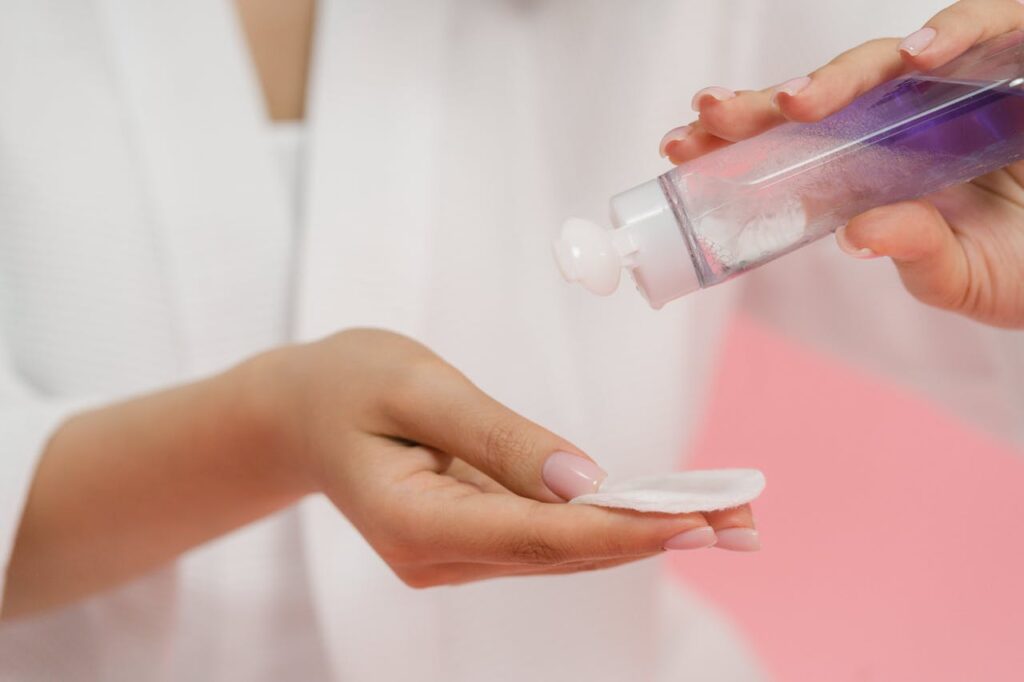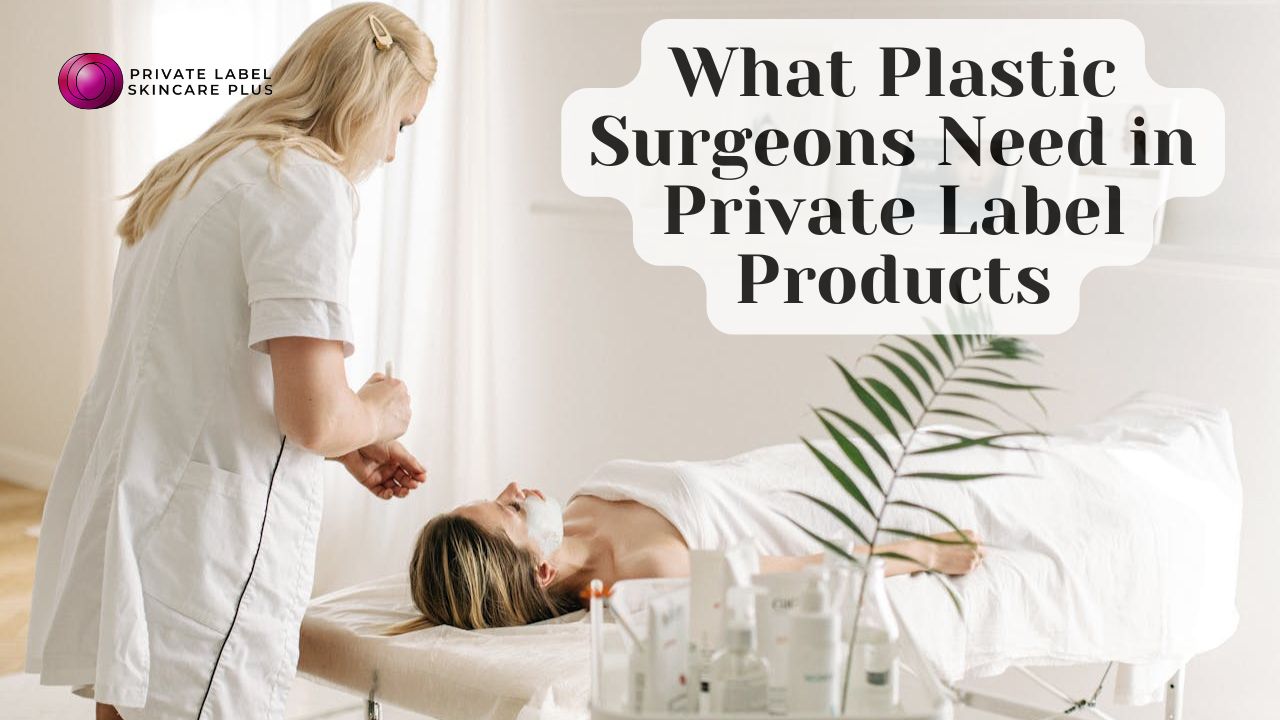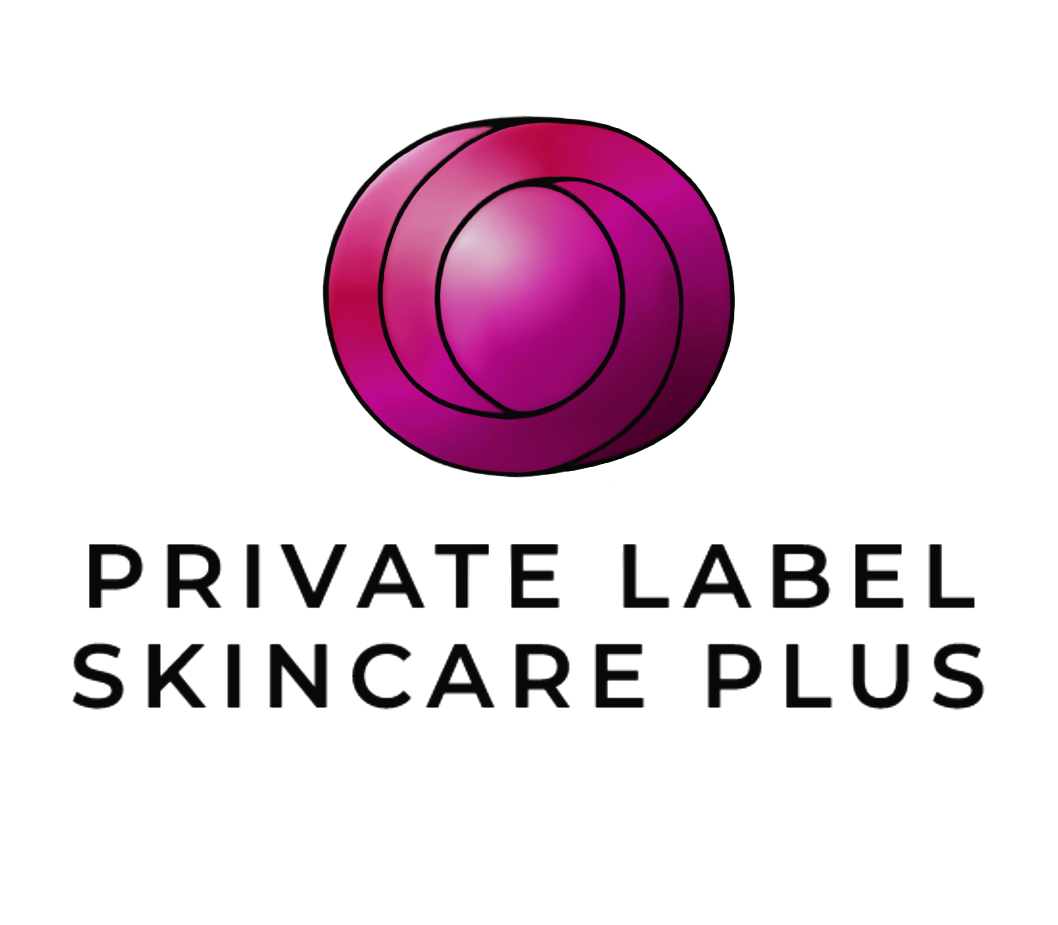The aesthetic medicine market is changing rapidly, so that plastic surgeons can offer their patients more than just a surgical procedure. Today’s consumers expect more than a procedure from private label skincare for plastic surgeons, they expect a total beauty and skincare approach. This new expectation is behind why many plastic surgeons are starting to develop private label skincare products as an extension of their practice.
It develops brand loyalty, provides a new revenue stream, and develops the perception of the surgeon as an authority in skin health. So, what should plastic surgeons be looking for when choosing or creating a private label skincare line?
This article will explore the fundamental features of skincare as well as the ingredients and strategies that plastic surgeons need to prioritize most when selecting or choosing private label products, whether you are just getting started or already developing your product lines.
Top 8 Must-Haves in private label skincare for plastic surgeons
Here are the most crucial requirements for plastic surgeons to succeed in the field of private label skincare:
1. Clinical-Grade Formulations to Support Post-Surgical Healing
Plastic surgeons are focused on providing the best medical care possible. Any product a surgeon endorses must also be up to that standard, which is why medical-grade skincare agents are a must-have. Medical-grade products should have peer-reviewed evidence of efficacy and safety, be free of irritants, and have some sort of clinically evaluated results. Make sure to match the standard they expect their post-operative clients to receive.
Important Features to Include:
- Anti-inflammatory agents, such as calendula, arnica, niacinamide, and aloe vera, reduce redness and swelling.
- Gentle but effective actives such as hyaluronic acid, peptides, or ceramides can be effective to restore the skin barrier.
- Fragrance-free, hypersensitivity-free, and non-comedogenic formulas suitable for sensitized post-operative skin.
Skincare science for surgeons is always concerned about how products will impact the healing incisions, scarring, and skin texture. Having a private-label scar treatment serum, healing balm, and/or a post-procedure cleanser in their arsenal that is soothing and sterile can be an absolute advantage over someone relying on a commercial-grade or drugstore product for their post-operative care kits.
2. Trust and Transparency in Ingredient Sourcing
Plastic surgeons are not simply endorsing a product—they’re placing their reputation on the line. Transparency with ingredient sourcing, certification testing, and formulation science is paramount.
Surgeons Expect:
- Utilize INCI names within ingredient lists
- Evidence-based actives supported by whitepapers for testing or clinical trials
- Any allergen-free or cruelty-free claims without certifications
- An understanding of stability and shelf life
Private label skincare manufacturing brands looking to sell and market to plastic surgeons must know that their products need to work, be traceable, be legislated, and have scientific proof. Transparency builds trust and in a medical environment, trust is everything.

3. Customization and Personalization Options
A one-size-fits-all approach does not apply to cosmetic surgery or skincare. Surgeons typically want products that are customized for their patient base, practice aesthetic, or post-operative protocols.
Customization Features That Surgeons Look For:
- Modify formulas (growth factors, stem cells, or CBD)
- Multiple packaging options apply to practice branding
- White labeling including logo, packaging design and educational inserts
- Tiered regimens (pre-surgery prep, immediate post-operative, long-term maintenance)
Offering flexible private label skincare for plastic surgeons allows them to provide exclusive, practice specific products that feel premium and trustworthy in the eyes of their patients. It takes a cookie-cutter stock skincare product to a branded extension of the surgeon’s expertise.
4. Brand Cohesion and Market Positioning
Plastic surgeons work in a competitive, brand-driven market. The product they provide should look, feel and say premium results, which is in line with their overall practice image.A good private label partner realizes the importance of brand continuity from the bare package to the font on the container and the unboxing experience.
Moreover, plastic surgeons want to be able to market these products with confidence in their office, on their ecommerce site, or as a part of a bundled treatment package.
How Private Label Brands Can Help:
- Branding consultation and support for marketing materials
- Sample packaging prototypes prior to production
- Copywriting support for packaging, product pages and brochures
- Patient education piece that educates and adheres to the surgeon’s tone and philosophy.
Essentially, when the skincare line looks and feels to be an extension of the practice, it creates trust and encourages future purchasing.
5. Results-Driven Product Lines
Plastic surgeons are evaluated based on results, and so is their product. An effective private label line should provide tangible results, not just in the literature but on patients’ skin. Whether reducing scars, resolving pigmentation, or enhancing skin quality, surgeons expect measurable, visual results in a short time frame.
Products that address common concerns in aesthetic medicine include:
- Brightening serums to treat pigmentation from laser or chemical peels
- Hydrating gels for redness and flakiness after surgery
- Scar creams that contain silicone, onion extract, or peptides
- Retinol-based night creams for skin rejuvenation over time
Proving the efficacy of your products and winning the trust of the surgeon can be achieved through before-and-after photography, testimonials, and possibly in-practice testing or samples.
6. Regulatory Compliance and FDA-Grade Standards
In medical aesthetics, anything less than compliance is unacceptable, especially when it comes to private label skincare for plastic surgeons. They want to know that the products they offer were made in licensed facilities and that they follow appropriate Good Manufacturing Procedures (GMP) and any relevant, applicable FDA or international regulations.
Any private label brand should have robust documentation, product liability insurance, and a clear methodology of quality assurance and batch traceability. COAs (Certificates of Analysis), Safety Data Sheets (SDS), and any other compliance documentation are all useful in developing credibility.
However, if a brand can demonstrate regulatory compliance, it protects the surgeon and showcases you as a serious players in the industry of medical skincare as a whole.
7. Transparent Fulfillment and Flexible Supply Chain Capacity
Surgeons generally have small to midsize practices and may not have time or interest in managing complex or expensive product inventories for reordering frequently; rather, they want seamless and secure supply chain fulfillment.
Important Logistics Features That Surgeons Value
- Flexible MOQs to trial products with low risk
- Auto-replenishment options or inventory alerts
- Drop-shipping capabilities or private ecommerce portal options
- Available customer support for reorders, returns, or product updates
Having scalable logistics and an easy ordering experience ensures surgeons can maintain their skincare practice smoothly and simply without backend functionality concerns.

8. Educational Support and Clinical Integration
Skincare is not just a product but involves product usage. Plastic surgeons require patient education tools to explain product use, timing of product use, and supporting procedures.
Increasing patient education not only improves the outcomes of the products in the practice but also enhances overall patient satisfaction and subsequent patient retention. Surgeons also appreciate how educated staff can provide recommendations and consult about skincare.
How Brands Can Help:
- Create usage guides or pamphlets to provide the patient
- Offer virtual sessions or in-person training on product usage
- Grant explainer videos or digital leaflets for patients, especially to occupy patients while they wait
When the surgical team engages patients in their overall skincare education and implementing a product into a routine, this benefits both patients outcomes and product sales.
Conclusion
Plastic surgeons, first and foremost, are not simply looking to incorporate skincare into the practice. They are looking for a resource that understands the delicate balance of patient care and brand trustworthiness. The details matter, from clinical skincare ingredients and incorporation of their brand aesthetic, to ensuring compliance and logistics for every step in.
As a private label skincare for plastic surgeons, your true value is all about bridging the science with elegance, and the results with the experience. The closer you come to fulfilling what a surgeon is looking for clinically, aesthetically, and operationally the more indispensable you become in their practice.
If you are a plastic surgeon who wants to offer a custom, high-performance skincare line for your patients, we can help. Our team specializes in developing private-label skincare for aesthetic medical professionals. From the formulation to fulfillment, we will handle the science, while the surgeon is free to change lives.Let’s start working on your signature skincare line today.


